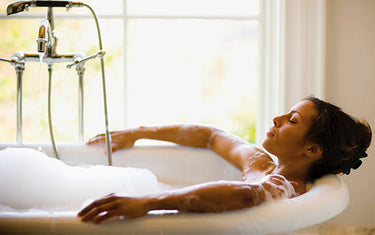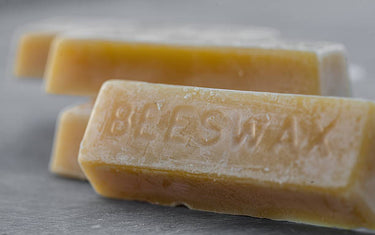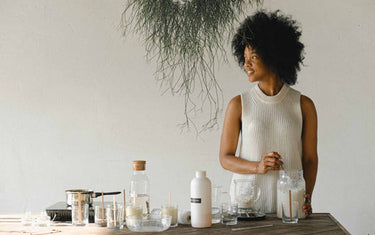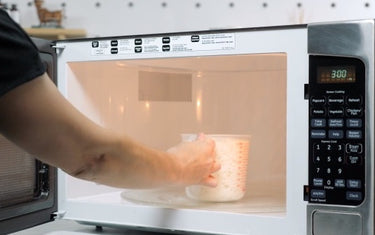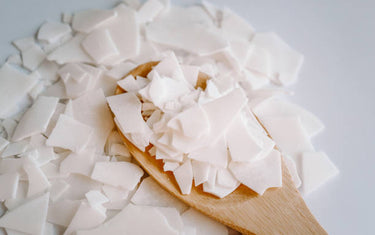6 min read / 4 June 2023 / Laura Garvin Gomez
How to Start a Candle-Making Business at Home
Starting any kind of business can be tough without direction. This quick-fire guide will run through all the basics you'll need to know before getting started.

Love crafting candles? Start your own business!
If you're reading this, the thought has probably already crossed your mind, and that's great! Starting a candle business is a fantastic outlet for making money out of something you love, which is a premise we all strive for in our everyday lives.
Of course, starting a venture like a business is never easy in the beginning, but that doesn't mean it's not possible. In fact, there are surprisingly few steps you have to keep in mind when starting a candle making business.
Now that the thoughts are circulating, it's time to turn them into action. Sound daunting? We're here to help with our top tips on how to start your own candle business right from home.
How to start a candle making business at homeWe've gathered 7 key steps you'll need to focus on before starting your business. This will cover everything from your initial ideas to insurance and legal regulations. Let's get started! 1. Choose your business nameThe first and most important step in starting a business is choosing a name. You should pick a business name that stands out from the crowd and is easily identifiable to your potential customers. Choosing a name can feel like a lot of pressure initially, but it's really not as complicated as it seems. The most important thing is to select something that represents both you and your business as a whole. Try to avoid complicated and long-winded business names. Instead, choose something simple - preferably no longer than three words. Worried that your name might be taken? Check the UK's Company Name Availability Checker to make sure. Once you've chosen a name, you'll have to register your company either online or via a postal application. |
2. Find your USP
Your Unique Selling Point (USP) will determine what sets you apart from other candle businesses. This is important to establish as soon as possible so you can build a good brand off of it.
Firstly, figure out who your target market will be. Are your candles aimed at a broad range of ages, or would they be better suited to a specific demographic?
From there, you'll need to decide what your niche will be. Will you be selling luxury candles with only the best ingredients? Are you focusing on a particular scent theme, such as sweet shop aromas or fragrances inspired by a geographical location?
Perhaps your focus is on sustainability or eliminating stress. Whatever it is, make sure you're jotting down all your candle business ideas before you start planning anything official.
Think about how this focus will capture your customers too, and research some of your key competitors to ensure you're offering something slightly different, but with a similar appeal.
3. Create a business plan and budget
While this step isn't essential for getting started, you'll feel a lot more relaxed with it in place. Mapping out a clear business plan before you launch will help you develop a clear understanding of what you want to achieve and how you're going to achieve it.
Part of this plan will involve researching what's currently on the market, but that's not all. You'll also need to conduct a SWOT analysis of your potential competitors to figure out exactly what makes them tick. This will categorise their Strengths, Weaknesses, Opportunities, and Threats.
From there, you can figure out which gaps need to be filled and how you, as a new business owner, can fill them. Once that's completed, you'll then have to think about your budget. You should consider aspects like:
- Set up costs (like equipment and supplies)
- The time it takes to make your candles
- How much each candle costs to make
- Where you're going to sell your candles
These figures will also determine how much you're going to be charging for your candles, so is worth thinking about right from the jump.

4. Choosing your supplies
If you're wanting to start a candle business, chances are you're already familiar with what it takes to actually make a candle. Even still, it's good to have a checklist of what you'll need so you can work it into your budget.
Some basic candle making supplies include:
- Candle wax - from paraffin and soy to beeswax and coconut, there are tons of wax types to choose from for your business. Learn about the differences between candle waxes.
- Candle wicks - these can be purchased from a shop, or you can make your own at home.
- Scents - you can use either natural essential oils or synthetic fragrance oils, depending on your preference.
- Dyes - you can find either powdered or liquid versions in stores.
- Candle containers - almost anything can be a candle container in theory, but it's worth deciding what kind you want and how this fits into your brand image.
- Thermometer - for heating your wax and ensuring it doesn't go above 80°C.
- Packaging - think about how you're going to package your candles and how this looks alongside the look of your candle and your business values.
5. Set up your business platform
There are a few ways to reach out to potential customers and start selling. Depending on your business plan and desired marketing strategy, you may want to utilise a few of these or stick to just one. Here are some popular options:
- Set up a website. Create a professional-looking e-commerce website for your business. This will allow you to sell online and answer any queries that your customers may have.
- Utilise social media. Social media is a great place for finding potential customers. Sharing images or videos of your products on platforms like Instagram can help you reach a wider audience and pique new interests.
- Join an online marketplace. Marketplaces like Etsy and Amazon make it easy for consumers to find and purchase new products. They're also great for building your brand name and increasing visibility.
- Sell at craft fairs or local markets. It's amazing how much a community will rally behind a local business. Try setting up stalls at local events to help develop a strong support network.
6. Have your legal regulations in order
Before you start selling, it's extremely important to ensure your business is compliant with the necessary legal regulations.
For candles in particular, you'll need to focus on documents like CLP labels and make sure these are formatted in the correct way. If you're unsure of how to do this, you can refer to our CLP labelling guide.
For a complete list of everything you'll need to include, and all the regulations you must follow, have a read of our guide on the legal requirements for selling candles and wax melts in the UK.
7. Protect your business with insurance
While insurance isn't mandatory for candle businesses, it is highly recommended. Insurance will protect your business from unforeseen circumstances like theft of goods or legal claims against your product.
If you want to learn more about the advised insurance types for candle businesses, you can refer to our guide on candle making and wax melt insurance for more information.

Once all these steps are in order, you're ready to start selling! Every candle business journey will be slightly different, so don't feel disheartened if things aren't as linear as you'd expect them to be in the beginning.
As long as you've got a strong brand image and business plan behind you, there's no reason why your business shouldn't be a major success before long.


